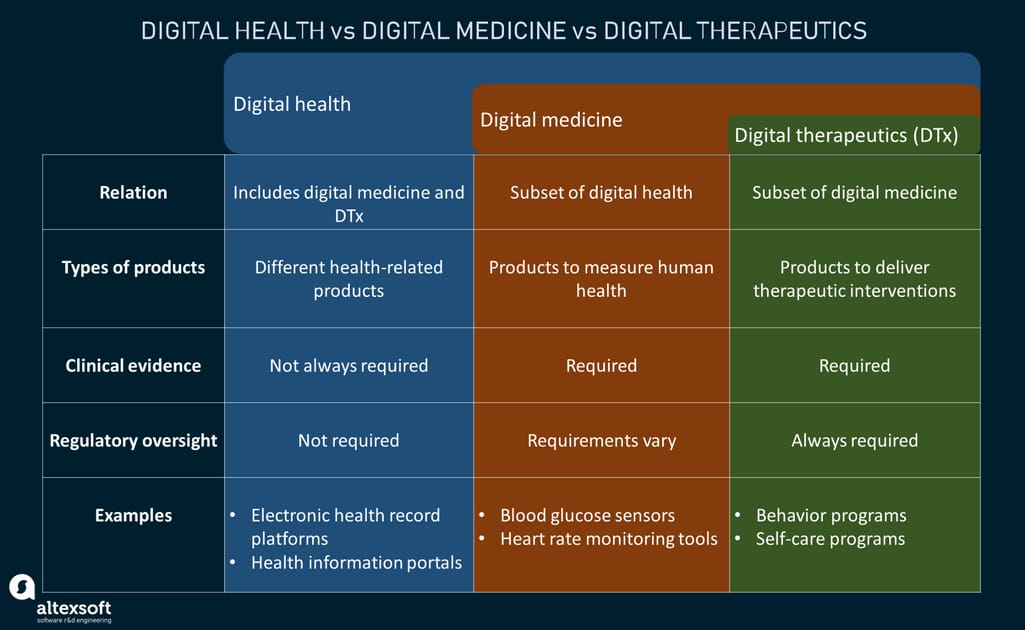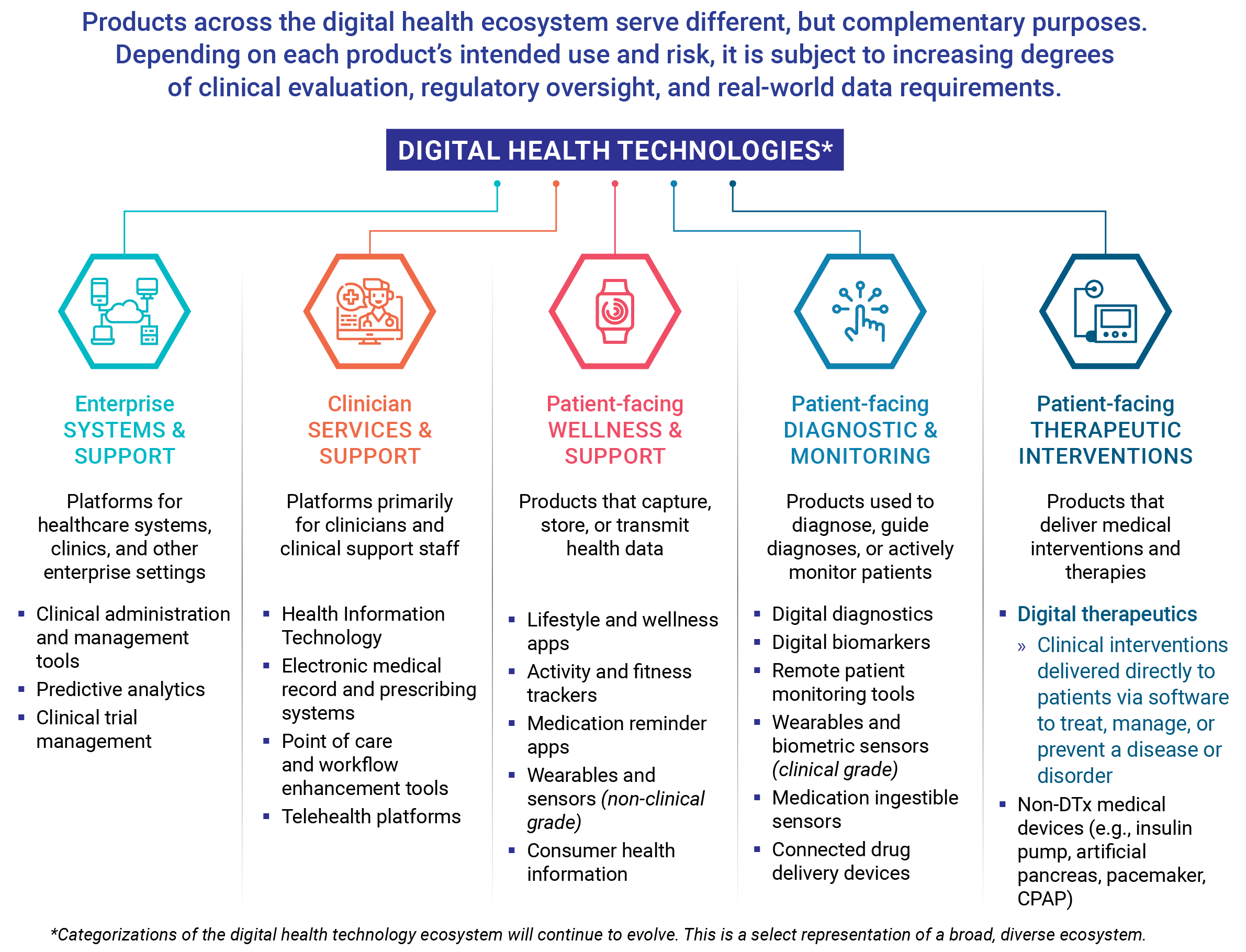What are Digital Therapeutics?
Digital therapeutics (DTx) are clinically evaluated software-based interventions designed to prevent, manage, or treat medical conditions. Unlike simple health apps, DTx are backed by rigorous clinical evidence demonstrating their effectiveness. They use a variety of methods, including behavioral modification techniques, gamification, and personalized feedback, to help patients improve their health outcomes. Think of them as prescription-strength apps for your health, tailored to specific needs and conditions.
DTx: Beyond Fitness Trackers and Meditation Apps
While fitness trackers and meditation apps can contribute to overall wellness, DTx are a step up. They offer much more than basic tracking and guidance. They’re specifically designed to address particular health issues, such as chronic pain management, smoking cessation, or anxiety disorders. This targeted approach leads to more meaningful and measurable improvements in patient health, often exceeding the benefits of traditional treatments alone.

The Growing Body of Evidence Supporting DTx
Numerous clinical trials have shown DTx’s effectiveness across a wide range of conditions. Studies have demonstrated positive outcomes in areas like cardiovascular disease management, diabetes control, and mental health treatments. This robust evidence base is crucial for gaining widespread acceptance within the healthcare community and for securing insurance coverage, both of which are vital for DTx to reach their full potential.
How DTx Improve Patient Engagement and Adherence
One of the biggest challenges in healthcare is patient engagement and adherence to treatment plans. DTx addresses this by providing personalized, convenient, and accessible interventions. Patients can access their DTx programs anytime, anywhere, using their smartphones or tablets. This ease of access often leads to better adherence to treatment plans compared to traditional methods, which can be inconvenient, time-consuming, or require frequent visits to healthcare providers.
The Role of Data and Personalization in DTx Success
DTx leverage data to create truly personalized experiences. By tracking patient progress and preferences, these programs can adapt their approach in real-time. This dynamic personalization ensures the intervention remains relevant and effective throughout the treatment process, maximizing the likelihood of achieving positive outcomes. This data also provides valuable insights for healthcare providers, allowing them to better understand patient needs and tailor their care accordingly.
Addressing Challenges and Concerns Surrounding DTx
Despite their potential, DTx face challenges. These include regulatory hurdles in gaining approval and reimbursement, ensuring data privacy and security, and addressing potential disparities in access based on socioeconomic factors and technological literacy. Overcoming these challenges requires collaboration among developers, healthcare providers, policymakers, and payers to establish clear guidelines and ensure equitable access to these innovative tools.
The Future of DTx: Integration and Expansion
The future of healthcare is likely to see greater integration of DTx into existing care pathways. We can anticipate DTx being incorporated into comprehensive treatment plans, alongside traditional therapies, to enhance their effectiveness. Furthermore, research and development continue to expand the range of conditions that can be effectively managed using DTx, with new applications emerging constantly.
DTx and the Transformation of Healthcare Delivery
DTx are poised to transform healthcare delivery, providing more accessible, affordable, and effective care. They offer a pathway to personalized medicine, empowering patients to actively participate in their own health management. By combining the power of technology with clinical expertise, DTx represent a significant step towards a more patient-centric and outcome-driven healthcare system.
Collaboration: Key to Unlocking DTx’s Full Potential
The full potential of DTx will only be realized through strong collaboration among various stakeholders. Developers need to work closely with clinicians to ensure the interventions are clinically sound and meet patient needs. Payers need to recognize the value of DTx and provide appropriate reimbursement. Regulatory bodies need to streamline the approval process while maintaining high standards of safety and efficacy. Ultimately, a collaborative approach will be crucial for integrating DTx effectively into the fabric of healthcare. Read also about what is digital therapeutics.




